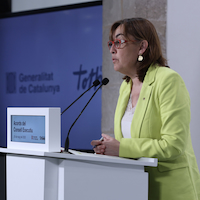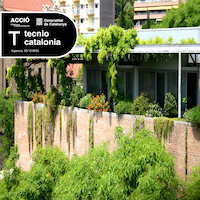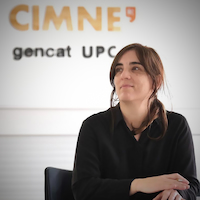news
CENIT’s Director participates in debate over Economic Sustainability of Public Transport in Barcelona
Public transport in Catalonia has been benefiting from temporary fare subsidies, which are only guaranteed until 30 June, 2025. Once they expire, it is not clear who should bear the cost of public transport, a share split between end users ─through ticket fares─ and the government budget.
The director of CIMNE’s Innovation Unit in Transport (CENIT), Sergi Saurí, last month participated in a debate over the economic sustainability of public transport in Catalonia in Barcelona’s public television channel, betevé. Dr. Saurí was joined by Mercedes Vidal, from the Catalan Association for the Promotion of Public Transport (PTP) and former Councillor for Mobility in Barcelona.
While the debate over transport funding is not new, recent difficulties in approving subsidies highlight the system’s vulnerability. As Dr. Saurí points out, public transport financing cannot remain at the mercy of political negotiations. When budget approvals are delayed, passengers and service quality suffer, creating uncertainty for both users and operators.

Sergi Saurí participating in a debate on Catalan news channel betevé about the economic sustainability of public transport in Catalonia.
Stable, fair and inclusive financing
Experts agree on a clear solution: a stable and predictable funding model that ensures affordability while maintaining service quality.
Ms. Vidal argued that public transport should be funded primarily through taxation, ensuring that users pay only a small share of the total cost. “Public transport should be affordable for everyone, with subsidies reserved for the most vulnerable groups,” she said. “There should be no issue in offering free transport to those who genuinely need it.”
Dr. Saurí agrees that improving service quality is the most effective way to increase ridership — and supports a subscription-based fare model that guarantees a minimum income for the system while keeping financial aid targeted at low-income users.
Sustainable Investment for Long-Term Viability
According to Saurí, the long-term success of public transport depends on a financing system that is independent of political fluctuations. Experts suggest that sustainable funding could be achieved through dedicated taxes on high-polluting vehicles or other mechanisms that reinforce the link between transport and environmental responsibility. Additionally, ensuring consistent investment in infrastructure maintenance and expansion is crucial to meeting rising demand and climate goals.
Watch the full debate (in Catalan):






.jpg)














